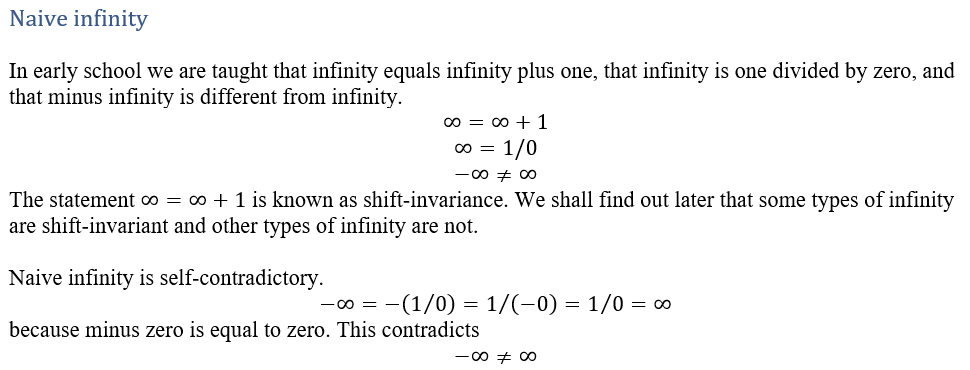I wrote this paper. Which infinity? A guide to ordinal infinity for applied mathematicians.
How do I find the people who need to read it?


I wrote this paper. Which infinity? A guide to ordinal infinity for applied mathematicians.
How do I find the people who need to read it?


I suppose you could post a link on a forum with one or two more readers than this one and see who was interested.
I’ll probably have a look because I still don’t get all these infinities, but does any applied mathematician actually need to know about different infinities?
This is a very interesting paper but I still remain skeptical about the soundness of this treatment of oscillatory functions.
I suppose that in practical terms infinity doesn’t exist, it’s a term for a hypothetical number that doesn’t really exist (?)
> does any applied mathematician actually need to know about different infinities?
Yes.
In several contexts:
1) Computational complexity
2) Quantum renormalisation
3) In evaluating divergent series, which appear in all branches of science
4) Possibly also in understanding “spooky action at a distance” in quantum mechanics
dv said:
This is a very interesting paper but I still remain skeptical about the soundness of this treatment of oscillatory functions.
Excellent response. :-)
But you do accept that geometric optics is useful? Even though light is an oscillatory function that reaches out to infinity in all directions.
I suppose here that what I’m saying is that wave-particle duality pervades the mathematics of infinite numbers as well as just all of physics.
wookiemeister said:
I suppose that in practical terms infinity doesn’t exist, it’s a term for a hypothetical number that doesn’t really exist (?)
This is Aristotle’s thought. That there are two types on infinity, one that doesn’t exist but can only be approached. And the other (such as the set of natural numbers, the real number only exists as the limit of an infinite sequence of rational numbers, and the length of an interval of time) than can be manipulated mathematically.